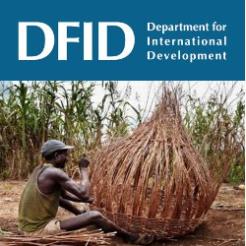The British government has suspended all direct aid payments to the Ugandan government following allegations of fraud.
The Department for International Development (DFID) announced on Friday (16 November) that it has halted with immediate effect any direct aid payments to the Ugandan government while investigations into alleged fraud by the Office of the Prime Minister of Uganda continue.
"Britain has frozen all UK aid spent through the Ugandan government," said a DFID spokesperson.
"This is a result of initial evidence emerging from our ongoing forensic audit of the Office of the Prime Minister, which indicates aid money may have been misused.
"We are extremely concerned by these preliminary findings and we will assess the decision further when we have considered the full findings of the report," they said.
DFID had already halted aid to the Office of the Prime Minister in August but the latest announcement postpones all other aid spent through the government of Uganda's financial systems.
DFID's support to Uganda this financial year totals £98.9m, £26.9m of which is direct to the Ugandan government. DFID paid some £672,500 to the Ugandan government in September alone. But £11.1m is yet to be paid and this has been frozen while a tribunal investigates claims that donated funds were diverted from the Ugandan government's Peace, Recovery and Development of Northern Uganda programme to a separate account and later "stolen".
"Unless the government of Uganda can show that UK taxpayers' money is going towards helping the poorest people lift themselves out of poverty, this aid will remain frozen and we will expect repayment and administrative and criminal sanctions," the DFID spokesperson asserted.
DFID had budgeted to spend an average of £89m per year in Uganda until 2015. The majority of DFID's funding to Uganda is spent through the private sector, multilateral bodies and NGOs, with £73m due to be delivered this way in this financial year. These funds are not currently affected by the scandal.
DFID's strategy for Ugandan aid was devised to help the country gain democratic stability and support the most vulnerable people. It planned among its targets to help over 100,000 school drop-outs return to education, help 600,000 of the poorest people lift themselves out of poverty and help 75,000 households in north-eastern Uganda move away from emergency food aid by 2015.









